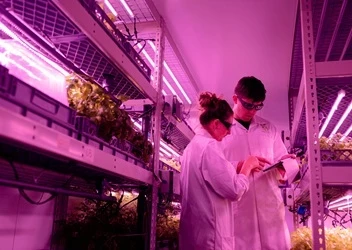British Airways takes flight with AI-driven business transformation
British Airways is using Microsoft AI technology to revolutionize operations and enhance key processes
Add bookmark
British Airways is taking flight with a new artificial intelligence (AI) driven business transformation initiative, introducing technology to revolutionize operations and enhance key processes.
Speaking at DTX London, Jake Pearce, head of AI and Rameez Ebrahim, head of transformation, outlined the strong early results the airline has achieved after embarking on a new Microsoft Copilot trial in June.
In just three months, it has progressed 34 specific use cases including automating RFP responses, creating HR policy agents and enabling instant email prioritization.
The firm has achieved measurable productivity gains with 39 percent of users reporting between one and four hours of daily time savings and 93 percent seeing improved efficiency.
Join the PEX Network community

Don't miss any news, updates or insider tips from PEX Network by getting them delivered to your inbox. Sign up to our newsletter and join our community of experts.
Learn MoreBritish Airways’ history is shaping its AI strategy
British Airways is undergoing a significant transformation, according to Pearce. The firm is drawing upon decades of aviation automation experience, such as auto-landing capabilities introduced in the 1960s, to inform its approach to AI implementation, he added. This historical perspective emphasizes making technology a partner rather than a threat to employees.
Ebrahim illustrated how AI tools can unlock human potential when properly applied, suggesting that, when industry professionals are equipped with the right technology, there are limitless possibilities.
British Airways recognizes itself as a “number of businesses within one business,” with distinct cultures across operations, engineering and back-office functions, Ebrahim said. This complexity requires customized AI agents for specific operational areas rather than a ‘one-size-fits-all’ approach.
British Airways’ core AI principles
British Airways is positioning its AI transformation with a clear end goal: enabling colleagues to be their best selves so customers receive the best possible experience. This demonstrates a human-centric approach to technology adoption.
Two core principles guide British Airways’ AI integration strategy. The firm believes that AI should:
- Support colleagues by removing toil and repetition, thereby freeing them to undertake tasks where human creativity is key.
- Drive better customer experiences by enabling a more personalized, robust and engaging service.
The airline chose to centralize colleague AI interactions through Microsoft 365 Copilot for training and consistency benefits, while maintaining flexibility to use different AI technologies for embedded system applications.
Register for All Access: AI in Business Transformation 2025!
Data democratization and AI champions
Copilot serves as a key component of British Airways’ data democratization efforts. It has helped the firm move beyond data collection to enable users to interact with and take action based on organizational data.
A key element of the company’s AI strategy is a grassroots champion program, Ebrahim explained. This includes 216 volunteers and tailored training sessions that help support self-learning, spark innovation and build momentum. Champions act as advocates for adoption, provide knowledge and support for peers and are the ‘voice of the user.’
Governance and change management
Governance and change management have also been integral to British Airways’ AI successes. It set up new oversight to manage delivery and ensure compliance.
Meanwhile, effective cultural change management has helped the firm address key challenges such as AI-to-AI communication loops, where one person uses AI to expand content and another uses it to summarize, creating inefficiencies. “You’re really reinforcing the point that this isn’t a technology change, this is a people change,” said Pearce.
Looking ahead, British Airways plans to scale AI across diverse business areas including engineering, flight operations and customer service. Value mapping across 600 use cases is underway, with recommendations for an AI strategy expected by October and an aspiration to go live in January 2026.
“We are currently looking at an agent where our pilots could potentially go directly to this agent to support them with HR questions or event health questions. That could be our next phase where we give the opportunity to our operational teams,” said Ebrahim.
Accelerating business transformation with bespoke solutions on ServiceNow App Engine

Today, off-the-shelf software solutions offer diverse features that enable vast opportunities to implement and maintain business transformation. However, in some circumstances, capabilities lack the flexibility and specificity required to address the unique challenges and workflows of individual organizations. As a result, there is a growing shift toward bespoke application development – custom-built solutions that align precisely with strategic goals and operational demands.
Download this report to explore how enterprises can harness the power of custom applications to drive meaningful transformation. With the growing adoption of low-code platforms like ServiceNow App Engine, organizations are building custom applications faster and with greater control. By empowering both IT professionals and citizen developers to build tailored solutions, organizations can significantly reduce time to value while maintaining control over quality and compliance.
Download Now












